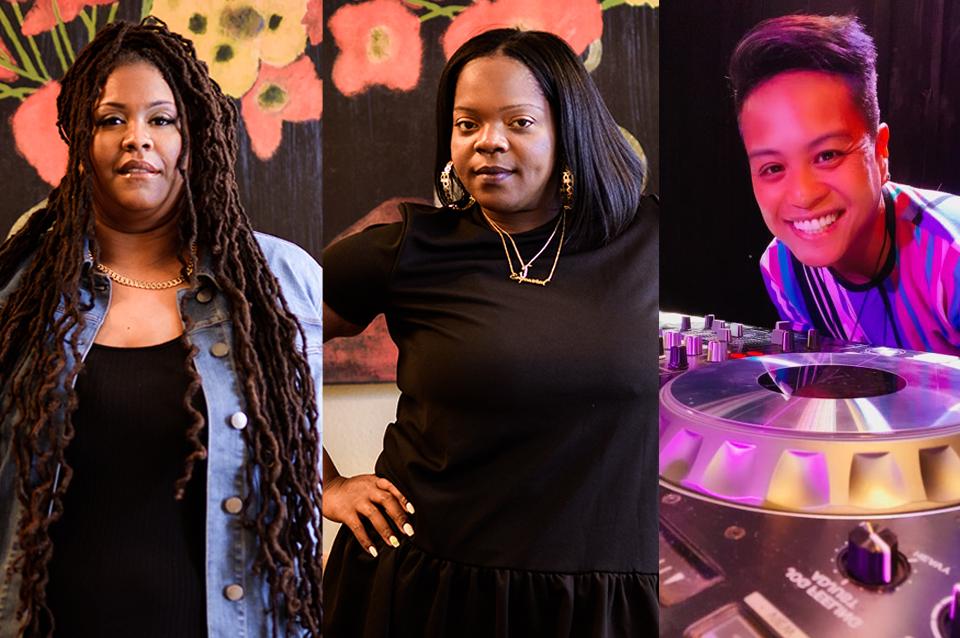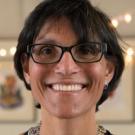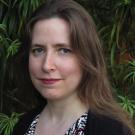Spring Quarter 2022
'Promoting Trans-Disciplinary-Scholars for the California of the 21st Century', Prof. Caporale and Prof. Deeb-Sossa
This course will place student learning and responsibilities as scientists in the larger context of the challenges and needs of society in the 21st century. The focus is on the relationship between STEM fields and Media Literacy, Ethics, Sociology and History (MESH), as well as civic competence in the context of student-driven discussions on complex social, political and scientific problems that are relevant to them.
The problems of the 21st century will bridge disciplines and require scholars that are fluent in the languages of science, sociology, anthropology, policy, ethics and more, and who can engage in fruitful, respectful conversations with specialists in all these disciplines. Current events have made evident the short-comings of a reductionist, discipline-focused model that assumes that problems can be solved by dividing them into independent, discipline-specific units. The case of Henrietta Lacks is a clear example of inequities in science based on race, class and gender, that can be examined through a variety of lenses: the scientists at the time who probably never realized the implications of what they were doing outside of their research concerns; the way Henrietta Lacks family was ignored and latter approached by a postdoc who had no understanding of the situation; the companies that continue to sell HELA cells despite the way they were obtained; the critical role of HELA cells on the development of the polio vaccine; capitalism; etc.
At UC Davis, students in STEM, Humanities and Arts rarely have the opportunity to share a classroom and exchange perspectives on issues that affect every one of us in a variety of ways, to work together to try to develop trans-disciplinary solutions.

Associated Artist- SAYS Showcase: Hip Hop, Spoken Word, & Poetry: Using poetry for healing, community building, bringing people together
Headlining Performers:
Alexandra Huynh – 2021 National Youth Poet Laureate and SAYS Alumni
Sunni Patterson – Internationally acclaimed Poet and Spoken Word Artist
Zyah Belle – Singer and Songwriter
Karega Bailey + Sol Development
Also Performing:
Takarra Johnson – Poet, Spoken Word Artist, Hip-Hop MC and SAYS Alumni
Andreas Tillman – Poet, Spoken Word Artist, Hip-Hop MC and SAYS Alumni
Keon Johnson – Poet, Spoken Word Artist, Hip-Hop MC and former SAYS Poet-Mentor Educator.
Laura Cook – Poet, Singer, former SAYS Poet-Mentor Educator.
Mister Lewis – Hip-Hop MC and Community Teaching Artist.
Chicano Studies Undergrad Students.
Founded in 2008, Sacramento Area Youth Speaks (SAYS) utilizes critical literacy practices and spoken word performance poetry to engage, educate, and empower students within and beyond the walls of school. SAYS is an award-winning model of publicly engaged scholarship because of its innovative approach to community-university-school partnerships.
The UCD SAYS program serves thousands of underperforming students in the highest need areas in the region. Our year-round program creates pathways for high-risk youth into higher education.
SAYS places trained community-based poet-mentor educators into middle and high school classrooms to work hand-in-hand with teachers to engage, educate, and empower students. As these young people develop as the authors of their own lives through spoken word performance poetry, they become agents of change for themselves, their families, and their communities.
Thur, June 2, 2022 • 7:30pm Mondavi Center, UC Davis

Natalia Deeb-Sossa, Department of Chicana/o Studies
Professor Deeb-Sossa, a Professor in the University of California at Davis’ Chicana/o Studies Department, has conducted research in medical sociology, social psychology, symbolic interaction, race, class and gender, and methodology. All of her work makes contributions to substantive issues in inequality. In her book, Doing Good: Racial Tensions and Workplace Inequalities at a Community Clinic in El Nuevo South (2013) through participant observation and in-depth interviews, Natalia analyzed how workers at a private, not-for-profit health care center reproduce –or resist reproducing– inequalities of race, class and gender in their interactions with each other and in their daily work with the poor, especially Latinas/os. These inequalities are examined in a setting where health care providers face competing goals, conflicting demands, and understaffing. Her research has also focused on women's reproductive rights; Mexican women’s access to health via formal (institutional) and informal (cultural) avenues; study of curanderas, parteras, yerberas, sources of healthcare for sexually transmitted infections (STIs), family planning, and abortion; and health care issues with Mexican migrant agricultural workers. Currently, Natalia is examining how Mexican immigrant farm worker mothers, as cultural citizens, are negotiating power and resisting practices and policies of educational and health inequity in their local context.

Natalia Caporale, Department of Neurobiology, Physiology and Behavior
Professor Caporale's research interests center on issues of equity and diversity in science education, with a focus on understanding the barriers that minority and non-traditional college students face as they pursue their science degrees. Other research interests include implementation and testing of teaching strategies to improve student learning in large lecture courses as well as exploring undergraduate's conceptions of biology. Originally from Argentina, Natalia pursued her BS in Biology at the University of Buenos Aires and then came to the US where she pursued her Ph.D. in Neuroscience at UC Berkeley focusing on the cellular mechanisms of learning and memory. Following her postdoctoral work with Dr. Linda Wilbrecht studying the effects of early-life adversity on cognitive development and decision making in rodents, Dr. Caporale decided to dedicate herself to undergraduate education, which she adored, and she worked as a lecturer at UC Berkeley and SFSU for several years while also being a Visiting Scholar in Dr. Kimberly Tanner’s lab, where she started her training in science education research.